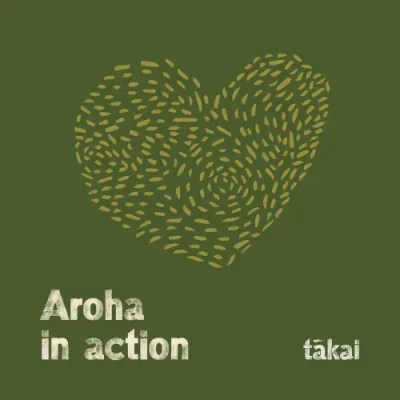
Reducing risk factors
Taking steps to reduce factors that have a negative impact on tamariki, and adding in things that will help their healthy development, will give tamariki the best chance of positive outcomes throughout their life.
The experiences we have in our childhood, coupled with our genes, influence the lives we live as adults. These experiences can be made up of both:
- things that make tamariki less likely to be healthy throughout their lives (risk factors)
- things that increase the chance of positive outcomes, such as better health (protective factors).
Taking steps to reduce risk factors and, where possible, adding in protective factors, will give tamariki the best chance of positive outcomes throughout their life.
Whānau may need support to do this. Start by talking about the things that are going well in the life of the tamaiti, and the things whānau are doing well. Together, you can then identify any things that might have a negative impact and talk through any changes they can make. Use clear language and examples relevant to their situation.
The effects of adverse events, stress, and trauma
Adverse events, stress, and trauma can have a negative effect on pēpi and tamariki and their developing brains. We refer to these as risk factors – essentially, things that make tamariki less likely to be healthy and develop well throughout their lives.
Risk factors include:
- parents with depression
- poverty
- badly stressed parents
- family conflict
- family violence
- emotional neglect
- alcohol and drug use in pregnancy and in the home.
Whānau can be reassured that just because some of these things are present, it doesn’t necessarily mean that the outcomes for a tamaiti won’t be good. It’s also important to avoid assumptions and definitive statements when talking to whānau. Everyone is unique and the effects will differ from one tamaiti to the next.
But one thing we do know is that tamariki benefit when everyone works together to try and reduce these risk factors as much as possible.
Being a parent can be stressful, but it’s important for parents to avoid offloading their own worries on their tamariki. The things tamariki worry about may seem small to adults, but to tamariki they are important and worthy of being acknowledged. In times of stress it can help for parents to see things through the eyes of their tamaiti.
Things that help with healthy development
Tamariki also benefit when we boost the number of protective factors. These are positive experiences that a tamaiti is exposed to.
They include when tamariki have loving and supporting people around them who:
- listen to them
- talk with them in a positive way, in language they can understand
- encourage them when they do something good
- sing to them
- read with them
- spend time with them
- play with them and have fun together, and laugh at their jokes
- cuddle them
- talk to each other, and to tamariki, in a nice way, and can resolve conflict without violence and abuse
- let them discover new things safely but are there if they need support
- tamariki can count on and trust.
Studies show that tamariki who grow up with lots of love, support and encouragement are more likely to be healthy adults. Some parents may need support to make the necessary changes – reassure them it’s okay to ask for help. They may want to approach friends, others in their whānau, or people in the community. They may also need professional help to manage things like depression or alcohol use.
Conversation ideas

Content adapted from our partner Brainwave Trust Aotearoa. Brainwave Trust has expertise in child and adolescent development, with a focus on brain development.
Helpful resources for whānau
-

Helping our tamariki get the best start in life
Brainwave Trust Aotearoa
Tamariki brain development is influenced by their genes and by their experiences. This free booklet for whānau shares helpful information.
 pdf 5 MB
pdf 5 MB











